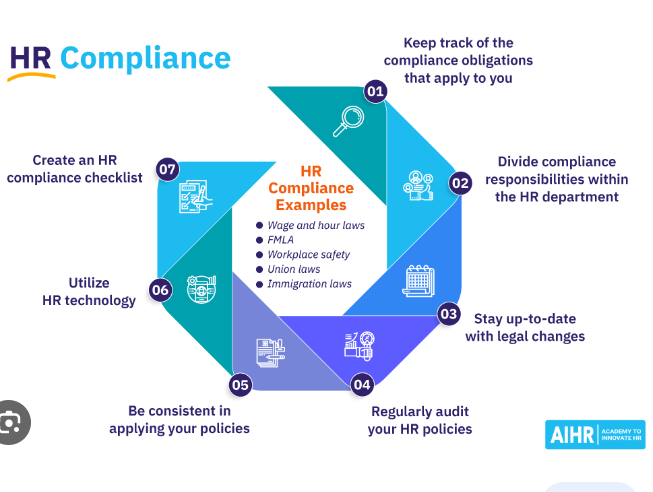Importance of the Global HR Compliance
Navigating the complex world of global HR compliance has become an essential skill as businesses expand their operations beyond borders. This necessitates a thorough understanding of international employment regulations as well as the complexities of managing expatriate assignments. With the world becoming more interconnected, businesses must navigate a complex web of legal frameworks while ensuring the seamless mobility of their international workforce. This article delves into the multifaceted nature of global HR compliance, illuminating the challenges it presents and proposing strategies that organizations must employ to navigate international employment regulations and effectively manage expatriate assignments.
Working in multiple countries introduces a kaleidoscope of employment regulations, each unique to its jurisdiction. These include labor laws, tax requirements, immigration requirements, and cultural norms, forming a complex tapestry of considerations for HR professionals. The consequences of failing to follow these regulations can be severe, ranging from legal penalties and reputational damage to operational disruptions. This complexity is exacerbated by the need to ensure equality in employee treatment regardless of location, all while adhering to local laws and customs.
Expatriate assignments, which involve employees being relocated to work in another country, add another layer of complexity to global HR compliance. These assignments necessitate a complex interplay with host country labor laws, tax obligations, and immigration requirements, all while ensuring alignment with the home office's HR policies. Striking this balance—maintaining legal compliance while nurturing expatriate well-being and job satisfaction—becomes a formidable challenge that organizations must address.
Organizations can use a variety of strategic measures to successfully navigate this complex landscape. Before expanding into a new country, thorough research is essential because it provides a foundational understanding of local employment regulations, tax codes, immigration procedures, and cultural norms. Engaging with legal experts who are intimately familiar with the host country's employment regulations can provide invaluable guidance in deciphering complex compliance requirements. HR policies that are adaptable to a variety of legal environments while maintaining core principles are critical for ensuring consistent compliance. Cross-cultural training can help to foster understanding and harmony among diverse teams, thereby avoiding cultural misunderstandings. It is critical to clearly outline the terms of expatriate contracts, including compensation, benefits, and working conditions, to ensure compliance with regulations in both home and host countries.
Moreover, businesses must establish payroll systems that accommodate tax regulations in both the home and host countries, addressing complexities caused by tax treaties and dual taxation. Expats' health and safety should be prioritized, with adherence to occupational health and safety regulations in both the home and host countries. Maintaining open lines of communication with expatriates is critical for organizations to address concerns and challenges as they arise.
Finally, global HR compliance necessitates a meticulous and strategic approach that takes into account the diversity of international employment regulations as well as the complexities of expatriate assignments. Organizations can successfully navigate this complex landscape by conducting thorough research, enlisting legal expertise, implementing tailored policies, and fostering effective communication. Successful global HR compliance and skilled expatriate management not only ensure legal compliance but also cultivate a harmonious and productive international workforce that is critical to the organization's global success.
- www.linkedin.com. (n.d.). Learn how to manage global HR compliance effectively. [online] Available at: https://www.linkedin.com/pulse/learn-how-manage-global-hr-compliance-effectively-anika-panwar/ [Accessed 11 Dec. 2023].
- SAP. (n.d.). HR compliance and risk management for the global workforce | SAP Insights. [online] Available at: https://www.sap.com/insights/hr-compliance-and-risk-management.html.
- IRIS FMP. (n.d.). Global HR Compliance | Intl. Employment Law. [online] Available at: https://fmpglobal.com/services/hr-employment-law-compliance/ [Accessed 11 Dec. 2023]


Very good explanation on HR & compliance! Some of the key areas such as dual taxation treaties, employee health and safety covered in your content. However, elaborating more on the employee safety. In manufacturing industry, I have come across companies obtaining standard certification for employee health and safety control adherence. For an example HACCP certification can be emphasized. Obtaining Hazzard Analyzing Critical Control point certification able to give the assurance to consumers that the company & the HR of the company`s concerns on compliance and employee health.
ReplyDeleteThank you Hasanka for your thoughts
Delete